Introduction
Jaw pain on one side is a common problem that can affect your quality of life. It can disrupt your capacity to consume, communicate, and rest. It can also cause headaches, earaches, and facial swelling. Jaw pain can have various causes, such as dental problems, sinus infections, or temporomandibular joint (TMJ) disorders. In this article, we will discuss some common causes of jaw pain on one side, how to identify them, and how to treat them at home.
Jaw Pain Identifying the Cause
The first step to finding relief from jaw pain is identifying the cause. You can start by doing a self-assessment of your symptoms, such as:
- Location and type of pain: Is the pain on one side of your jaw or both? Is it sharp, dull, throbbing, or burning? Does it radiate to your ear, face, or neck?
- Triggering activities or habits: Does the pain worsen when you chew, yawn, talk, or open your mouth wide? Do you clench or grind your teeth, especially at night? Do you have a habit of biting your nails, chewing gum, or holding objects between your teeth?
Based on your symptoms, you may have an idea of what is causing your jaw pain. Some of the common causes are:
- TMJ disorders: These are problems with the joint that connects your jaw to your skull. They can be caused by arthritis, injury, misalignment, stress, or overuse. Symptoms include pain, clicking, popping, locking, or limited movement of the jaw.
- Dental problems: These include cavities, abscesses, impacted wisdom teeth, gum disease, or tooth decay. Symptoms include tooth pain, sensitivity, bleeding, swelling, or bad breath.
- Sinusitis: This is inflammation of the sinuses, usually due to an infection or allergy. Symptoms include nasal congestion, discharge, headache, fever, or facial pressure.
If you suspect that you have any of these conditions, you should consult a healthcare professional for a proper diagnosis and treatment. A dentist can examine your teeth and gums, and perform imaging tests such as X-rays or CT scans if necessary. A doctor can check your ears, nose, and throat, and prescribe antibiotics or antihistamines if needed.

Home Remedies and Lifestyle Changes
While you are waiting for your appointment or recovering from your treatment, there are some home remedies and lifestyle changes that can help you ease your jaw pain. These include:
- Rest and avoid triggers: Try to avoid activities that aggravate your jaw pain, such as chewing hard or sticky foods, opening your mouth wide, or talking too much. You can also try to relax your jaw muscles by keeping your teeth slightly apart and your tongue on the roof of your mouth. If you clench or grind your teeth, you may benefit from wearing a mouth guard at night or using a biofeedback device to reduce stress and tension.
- Cold and heat therapy: Applying a cold or heat pack to your jaw can help reduce inflammation and pain. You can use an ice pack wrapped in a towel or a heating pad for 10 to 20 minutes, several times a day. Be careful not to burn or freeze your skin.
- Jaw exercises: Doing some gentle stretching and strengthening exercises for your jaw can help improve your range of motion and reduce stiffness. You can try opening and closing your mouth slowly, moving your jaw from side to side, or making circular motions with your jaw. You can also massage your jaw muscles with your fingers or a warm cloth. Be careful not to overdo it or cause more pain. You can ask your dentist or doctor for specific exercises that suit your condition.
Jaw pain on one side can be a frustrating and debilitating problem, but it can be treated with proper diagnosis and care. By following these tips, you can find some relief and improve your well-being. However, suppose your jaw pain is severe, persistent, or accompanied by other symptoms such as chest pain, difficulty breathing, or fever. In that case, you should seek immediate medical attention, as it May be a symptom of a more critical condition.
Dental Solutions
Sometimes, jaw pain on one side may require dental solutions to address the underlying cause and prevent further complications. Depending on the diagnosis, a dentist may recommend one or more of the following options:
- Mouthguards or splints: These are custom-fitted devices that fit over the teeth and help reduce clenching or grinding, which can cause or worsen jaw pain. A person may wear them at night or during the day, depending on their needs. Mouthguards and splints can also protect the teeth from damage and improve the alignment of the jaw.
- Bite correction: This involves orthodontic treatments, such as braces, aligners, or surgery, to correct the misalignment of the teeth or jaw, which can affect the function and stability of the TMJ. Bite correction can help reduce jaw pain, improve chewing and speaking, and enhance the appearance of the smile.
- Dental treatments for underlying issues: If the jaw pain is caused by cavities, infections, or other dental problems, a dentist may perform procedures such as fillings, root canals, extractions, or implants to treat the affected teeth and restore oral health. Dental treatments can also prevent the spread of infection and inflammation to the jaw and other parts of the body.
Medications
In some cases, jaw pain on one side may be relieved by taking medications that can reduce inflammation, muscle tension, and pain. Some of the common medications that may help with jaw pain are:
- Over-the-counter pain relievers: Non-steroidal anti-inflammatory drugs (NSAIDs), such as ibuprofen or naproxen, can help reduce swelling and pain in the jaw. They are available without a prescription and can be taken as needed, following the dosage instructions on the label. However, they may have side effects such as stomach irritation, bleeding, or kidney damage, especially with long-term use
Professional Therapies
If home remedies and medications do not provide enough relief for jaw pain on one side, a person may consider some professional therapies that can help address the underlying cause and improve the function of the jaw. Some of the professional therapies that may help with jaw pain are:
- Physical therapy: A physical therapist can teach a person how to do jaw exercises and manual therapy to improve the range of motion and strength of the jaw muscles and joints. Physical therapy can also help correct the posture and alignment of the head and neck, which can affect the jaw.
- Massage therapy: A massage therapist can use various techniques to relieve tension and pain in the jaw muscles and surrounding tissues. Massage therapy can also improve blood circulation and reduce stress and inflammation in the jaw area.
- Acupuncture: Acupuncture is a traditional Chinese medicine approach that involves inserting thin needles into specific points on the body to stimulate the flow of energy and promote healing. Acupuncture can help reduce jaw pain by relaxing the muscles, nerves, and blood vessels in the jaw and face.
Surgical Interventions (if necessary)
Surgery is usually the last resort for treating jaw pain on one side, as it involves more risks and complications than other methods. Surgery may be necessary if the jaw pain is caused by severe damage or deformity of the jaw joint or bone, or if other treatments have failed to provide relief. Some of the surgical interventions that may be used for jaw pain are:
- Arthrocentesis: Arthrocentesis is a minimally invasive procedure that involves inserting a needle into the jaw joint and flushing out the fluid and debris that may be causing inflammation and pain. Arthrocentesis can also help restore the normal movement of the jaw joint.
- Joint replacement: Joint replacement is a major surgery that involves removing the damaged or diseased jaw joint and replacing it with an artificial one made of metal or plastic. Joint replacement can help improve the function and appearance of the jaw, but it may also have some drawbacks, such as infection, nerve damage, or implant failure.
Follow-up and Prevention
After receiving treatment for jaw pain on one side, a person should follow up with their healthcare provider or dentist to monitor their progress and recovery. A person should also continue to use preventive measures to avoid or reduce the recurrence of jaw pain, such as:
- Stress management techniques: Stress can trigger or worsen jaw pain by causing the jaw muscles to tighten or clench. A person can use relaxation exercises, such as deep breathing, meditation, or yoga, to lower their stress levels and relax their jaw. A person can also seek cognitive-behavioral therapy (CBT) to address any stress-related habits or thoughts that may affect their jaw.
- Dental care and maintenance exercises: A person should maintain good oral hygiene and visit their dentist regularly to prevent or treat any dental problems that may cause jaw pain, such as cavities, infections, or misalignment. People should also do gentle stretching and strengthening exercises for their jaw to keep it flexible and healthy.
Conclusion
Jaw pain on one side can have various causes and treatments, depending on the individual case. By seeking professional help and following the appropriate recommendations, a person can find relief and improve their quality of life. However, suppose the jaw pain is severe, persistent, or accompanied by other symptoms such as chest pain, difficulty breathing, or fever. In that case, a person should seek immediate medical attention, as it Could be a sign of a more serious health problem.
FAQ
- Q: What are some common causes of jaw pain on one side?
- A: Some common causes of jaw pain on one side include TMJ disorders, dental problems, sinusitis, trigeminal neuralgia, osteomyelitis, tumors, and cysts.
- Q: How can I relieve jaw pain at home?
- A: Some home remedies for jaw pain include resting the jaw, applying a warm or cold compress, taking over-the-counter pain relievers, doing gentle jaw exercises, and massaging the jaw muscles.
- Q: When should I see a doctor or dentist for jaw pain?
- A: You should see a doctor or dentist for jaw pain if it is severe, persistent, or accompanied by other symptoms, such as chest pain, difficulty breathing, fever, toothache, facial swelling, or nerve damage.
- Q: How is jaw pain diagnosed?
- A: Jaw pain is diagnosed by a physical examination of the jaw and face, listening for jaw clicking or popping, assessing the range of motion of the jaw, and performing imaging tests, such as X-rays, CT scans, or MRI scans, if necessary.
- Q: What are some professional therapies for jaw pain?
- A: Some professional therapies for jaw pain include physical therapy, massage therapy, acupuncture, mouthguards or splints, bite correction, dental treatments, muscle relaxants, analgesic ointments, and surgery, depending on the cause and severity of the pain.
- Q: What are some preventive measures for jaw pain?
- A: Some preventive measures for jaw pain include maintaining good oral hygiene, visiting the dentist regularly, avoiding excessive jaw movements, chewing gum, or biting objects, reducing stress and tension, and wearing a mouth guard at night if you clench or grind your teeth.
- Q: What is TMJ disorder and how does it cause jaw pain?
- A: TMJ disorder is a condition that affects the temporomandibular joint, which connects the jaw to the skull. It can cause jaw pain due to disc displacement, joint inflammation, bone destruction, or muscle spasm in the jaw area.
- Q: What is sinusitis and how does it cause jaw pain?
- A: Sinusitis is inflammation of the sinuses, usually due to an infection or allergy. It can cause jaw pain due to pressure and swelling in the maxillary sinuses, which are located behind the cheeks.
- Q: What is trigeminal neuralgia and how does it cause jaw pain?
- A: Trigeminal neuralgia is a chronic nerve disorder that affects the trigeminal nerve, which carries sensations from the face to the brain. It can cause jaw pain due to compression, irritation, or damage of the nerve, resulting in sudden, severe, and shooting pain in the jaw or face.
- Q: What are some surgical interventions for jaw pain and when are they necessary?
- A: Some surgical interventions for jaw pain include arthrocentesis, which is a procedure that flushes out the fluid and debris from the jaw joint, and joint replacement, which is a surgery that removes and replaces the damaged or diseased jaw joint with an artificial one. Surgery is usually the last resort for jaw pain and is only necessary if the pain is caused by severe damage or deformity of the jaw joint or bone, or if other treatments have failed to provide relief.
- Q: What does it mean if one side of your jaw hurts?
- A: TMJ disorders: These are problems with the joint that connects your jaw to your skull. They can cause pain, clicking, popping, or locking of the jaw.
- Dental problems: These include cavities, abscesses, impacted wisdom teeth, gum disease, or tooth decay. They can cause tooth pain, sensitivity, bleeding, or swelling that may affect the jaw.
- Sinusitis: This is inflammation of the sinuses, usually due to an infection or allergy. It can cause pressure and pain in the jaw, especially in the maxillary sinuses behind the cheeks.
- Trigeminal neuralgia: This is a persistent neurological condition impacting the trigeminal nerve, responsible for transmitting sensations from the face to the brain. It can cause sudden, severe, and shooting pain in the jaw or face.
- Osteomyelitis: This is a rare infection of the bone or bone marrow. It can affect the jawbone and cause pain, fever, swelling, or redness.
- Tumors or cysts: These are abnormal growths that can develop in or near the jaw. They can cause pain, swelling, or difficulty moving the jaw.
- If you have jaw pain on one side, you should see a doctor or dentist for a proper diagnosis and treatment. The treatment will depend on the cause and severity of the pain. Some of the possible treatments are:
- Medications: These include pain relievers, anti-inflammatories, muscle relaxants, antibiotics, or antivirals. They can help reduce pain, swelling, infection, or nerve irritation.
- Home remedies: These include resting the jaw, applying ice or heat packs, doing gentle jaw exercises, or massaging the jaw muscles. They can help ease pain, inflammation, or muscle tension.
- Dental solutions: These include mouthguards, splints, bite correction, or dental treatments. They can help protect the teeth, improve the alignment of the jaw, or treat underlying dental problems.
- Professional therapies: These include physical therapy, massage therapy, or acupuncture. They can help improve the range of motion, strength, and blood flow of the jaw muscles and joints.
- Surgical interventions: These include arthrocentesis, joint replacement, or tumor removal. They can help repair the damage or deformity of the jaw joint or bone or remove the abnormal growths.
- Jaw pain on one side can be a frustrating and debilitating problem, but it can be treated with proper diagnosis and care. However, suppose your jaw pain is severe, persistent, or accompanied by other symptoms such as chest pain, difficulty breathing, or fever. In that case, you should seek immediate medical attention, as it Could indicate a more severe underlying issue.
- Q: How do I stop the side of my jaw from hurting?
- To stop the side of your jaw from hurting, you can try some home remedies, such as:
- Apply a cold or warm compress to the affected area for 10 to 20 minutes, several times a day.
- Taking over-the-counter pain relievers, such as ibuprofen or naproxen, to reduce inflammation and pain.
- Eating soft foods and avoiding chewing gum or hard or sticky foods that may strain your jaw.
- Doing gentle jaw exercises and massages to stretch and relax your jaw muscles.
- If your jaw pain is severe, persistent, or caused by an underlying condition, such as a TMJ disorder, a dental problem, or a sinus infection, you should see a doctor or a dentist for a proper diagnosis and treatment. They may prescribe medications, dental solutions, or professional therapies to address the cause and relieve the pain.
- Q: Can jaw pain go away on its own?
- Jaw pain can sometimes go away on its own, especially if it is caused by stress, tension, or minor dental issues. However, jaw pain that lasts for more than a week, or is severe, persistent, or accompanied by other symptoms, such as chest pain, fever, or facial swelling, may indicate a more serious condition that requires medical attention. Therefore, it is advisable to consult a doctor or a dentist if you have jaw pain that does not improve with home remedies or over-the-counter medications.
- Q: How long does it take for jaw pain to heal?
- The answer to this question depends on the cause and severity of the jaw pain. Some jaw pain may go away on its own in a few hours or days, while other jaw pain may require medical attention and treatment. Some of the factors that can affect the healing time of jaw pain are:
- The cause of the jaw pain: Jaw pain can have various causes, such as TMJ disorders, dental problems, sinusitis, trigeminal neuralgia, or heart attack. Some of these causes may be more serious or complicated than others, and may require different types of treatment.
- The treatment of the jaw pain: Jaw pain can be treated with various methods, such as medications, home remedies, dental solutions, professional therapies, or surgery. Some of these methods may be more effective or faster than others, depending on the individual case. Some of these methods may also have side effects or complications that can affect the healing process.
- The individual factors: Jaw pain can also be influenced by individual factors, such as age, health, lifestyle, or genetics. Some people may heal faster or slower than others, depending on their immune system, metabolism, or response to treatment. Some people may also have underlying conditions or habits that can affect their jaw health, such as arthritis, diabetes, smoking, or stress.
- Therefore, there is no definitive answer to how long it takes for jaw pain to heal. It can vary from person to person and case to case. However, some general guidelines are:
- If the jaw pain is mild or temporary, it may heal in a few hours or days with home remedies, such as resting the jaw, applying ice or heat packs, taking over-the-counter pain relievers, or doing gentle jaw exercises.
- If the jaw pain is moderate or persistent, it may heal in a few weeks or months with professional therapies, such as physical therapy, massage therapy, acupuncture, mouthguards, splints, bite correction, or dental treatments.
- If the jaw pain is severe or chronic, it may heal in several months or years with surgical interventions, such as arthrocentesis, joint replacement, or tumor removal.
- However, these are only estimates and not guarantees. The best way to find out how long it will take for your jaw pain to heal is to consult a doctor or a dentist who can diagnose the cause of your jaw pain and recommend the appropriate treatment for your condition. They can also monitor your progress and recovery and adjust your treatment plan as needed.
Important Notice:
The information provided on “health life ai” is intended for informational purposes only. While we have made efforts to ensure the accuracy and authenticity of the information presented, we cannot guarantee its absolute correctness or completeness. Before applying any of the strategies or tips, please consult a professional medical adviser.


